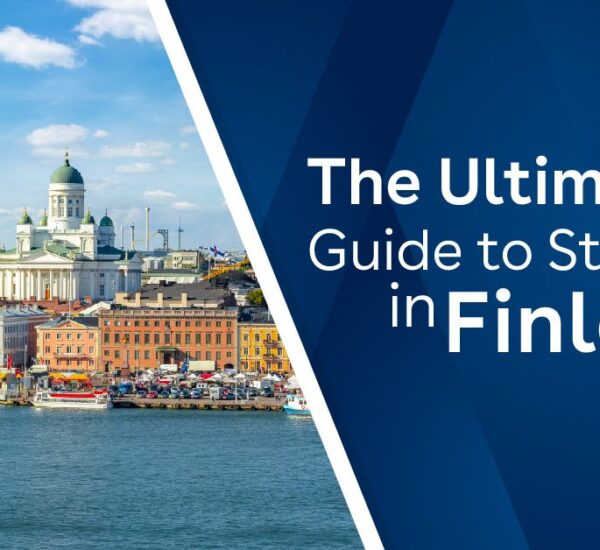When you’re applying for a job, internship, scholarship, or academic position abroad, two key documents often come into play: the resume and the CV (or Curriculum Vitae). While many use these terms interchangeably, they serve distinct purposes, follow different conventions across regions, and require specific content and formatting. In this guide, we’ll dive deep—across USA and Europe standards—into what sets a resume apart from a CV, when to use each, and exactly how to craft a compelling one that lands you an interview.
1. Definitions: What Is a Resume vs. a Curriculum Vitae (CV)?
1.1 What Is a Resume?
A resume is a concise, one- to two-page document summarizing your skills, experience, and education, tailored for a specific job application.
Primary Goal: Grab the recruiter’s attention quickly by highlighting relevant achievements and qualifications.
Common in: The USA, Canada, and parts of Asia, and for most positions in industry, business, and non-academic roles.
1.2 What Is a Curriculum Vitae (CV)?
Curriculum Vitae literally means “course of life” in Latin. A CV offers a comprehensive, multi‑page record of your entire academic, professional, and research history.
Primary Goal: Provide a detailed account of your publications, presentations, grants, certifications, and academic achievements.
Common in: Europe, the UK, Australia, and academic, scientific, and medical fields worldwide—even in the USA when applying for faculty or research positions.
2. CV vs. Resume: Key Differences at a Glance
| Feature | Resume | CV |
|---|---|---|
| Length | 1–2 pages | 2–∞ pages (detailed) |
| Content | Focused on relevant skills and experience | Complete record: education, publications, awards |
| Customization | Highly tailored per job | Largely static; use a cover letter for customization |
| Regions | USA, Canada, Asia (non‑academic roles) | Europe, UK, Australia, academia globally |
| Fields | Business, tech, non‑academic | Academia, research, medicine, government |
| Purpose | Secure interview by showcasing relevance | Demonstrate full career trajectory |
3. **When to Use a Resume vs. a CV
3.1 Use a Resume When…
Applying for corporate, engineering, IT, marketing, or other industry roles in the USA or Canada.
You need to showcase relevant skills and achievements aligned with a specific job description.
You want a concise document that a busy hiring manager can scan in seconds.
3.2 Use a CV When…
Applying for academic positions (e.g., postdoctoral, faculty roles) in USA universities or research institutes.
Submitting applications for PhD programs or postgraduate grants in Europe or the UK.
Detailing publications, research projects, conference presentations, teaching experience, and professional memberships.
4. Regional Nuances: USA vs. Europe
4.1 USA Standards
Resume is the norm for most jobs—keep it to one page unless you have 10+ years of experience.
CV used primarily in academia, medicine, and when applying for fellowships or grants.
Contact Info: Name, email, phone, LinkedIn URL. No photo.
Highlights: Quantifiable achievements (“Increased sales by 30%”).
4.2 Europe Standards
In the UK, Ireland, and much of continental Europe, “CV” and “resume” are often used interchangeably for the one- to two-page document.
Some countries (e.g., Germany, France) accept or even expect a small photo at the top—always check local norms.
Personal Details: May include date of birth, nationality, and gender (where legal).
Length: Up to 2 pages is standard for industry roles; academic CVs can be longer.
5. What to Include
5.1 Core Sections for Both CV and Resume
- Contact Information
- Resume (USA): Name, email, phone, LinkedIn (no photo).
- CV (Europe): Name, email, phone, possibly photo, nationality, address.
- Professional Summary / Personal Profile (optional for CV, common on resumes)
- 2–3 sentences highlighting your value proposition.
- Education
- List degrees in reverse chronological order: institution, location, degree title, graduation date, GPA (optional).
- Work Experience
- Resume: Focus on 3–5 bullet points per role, quantifying achievements.
- CV: May include responsibilities, research themes, teaching roles, grants.
- Skills
- Hard skills (software, languages, certifications).
- Soft skills (leadership, communication—use sparingly on CVs).
5.2 Additional Sections for a CV
- Publications (journal articles, book chapters)
- Conference Presentations / Posters
- Research Experience (projects, thesis)
- Teaching Experience (courses taught, TA roles)
- Grants & Fellowships
- Professional Memberships
- Honors & Awards
- Certifications & Licenses
- Languages (proficiency levels)
- References (optional: “Available upon request”)
6. Length & Detail
| Document | Typical Length | Level of Detail |
|---|---|---|
| Resume | 1–2 pages | Summarized, highly relevant to the job |
| CV | 2+ pages | Exhaustive—cover entire career and academic life |
Pro Tip: If you find your CV creeping past 5 pages, consider trimming older or less relevant roles at the bottom.
7. Formatting Tips
Font & Size: Use a clean sans‑serif font (Arial, Calibri) in 10–12 pt.
Headings: Bold, 14–16 pt. Distinct sections guide the reader’s eye.
Margins: 0.5–1 inch—enough white space to avoid clutter.
Bullet Points: Use for responsibilities and achievements; keep each to 1–2 lines.
Consistency: Dates and headings aligned; same style throughout.
ATS‑Friendly: Avoid tables, images, or unusual fonts if applying via an Applicant Tracking System.
8. Writing Your Resume
Professional Summary (2–3 lines):
E.g., “Detail‑oriented marketing professional with 5+ years driving social media engagement for USA‑based startups. Seeking to leverage digital strategy skills at [Company].”
Key Achievements:
Quantify impact: “Boosted email open rates by 45% through A/B testing.”
Relevant Experience:
Reverse‑chronological; focus on roles most aligned with the job.
Education & Certifications:
List recent degrees or relevant certificates (Google Analytics, PMP, etc.).
Skills Section:
Split into Technical (e.g., Python, SQL) and Soft (e.g., teamwork, adaptability).
9. Crafting Your CV
- Contact & Profile: Brief personal statement if desired.
- Academic Background: Include doctoral or postgraduate theses titles.
- Research & Publications: Full citations in a consistent style (APA, MLA).
- Teaching & Awards: List courses taught, supervisory roles, and honors.
- Professional Affiliations: Memberships in IEEE, ACM, etc.
- Conferences & Workshops: Locations, dates, roles (speaker, organizer).
- Grants & Scholarships: Source, amount, period.
Note: In the USA, academic CVs often reach 10+ pages—universities expect this depth.
10. Common Mistakes to Avoid
Resume longer than 2 pages (unless senior executive).
CV trimmed to a single page—loses crucial detail.
Typos & grammatical errors—always proofread carefully.
Generic documents—always tailor to the role or program.
Using “objective” statements instead of value‑driven summaries.
Listing irrelevant or outdated skills (your …space invaders high score probably isn’t relevant).
11. Final Checklist
Before pressing “Submit”, ask yourself:
- Have I customized my resume for this position?
- Does my CV fully capture all my academic and research accomplishments?
- Did I adhere to the USA or European formatting norms?
- Is my document error‑free?
- Have I saved files with professional names (e.g.,
Lastname_Resume.pdf,Lastname_CV.pdf)?
12. Conclusion
A well‑crafted resume or CV can be the difference between landing an interview in the USA, Europe, or beyond—and watching your application disappear into the black hole of “no response.” By understanding the key differences, adhering to regional expectations, and tailoring your document with relevant, quantifiable achievements, you set yourself apart from the competition. Remember: the best document is one that tells your unique story, aligns with the employer’s or academic program’s needs, and does so with clarity and professionalism.
Ready to apply? Choose the right format, fill it with confidence, and get one step closer to your global career or academic dream!


